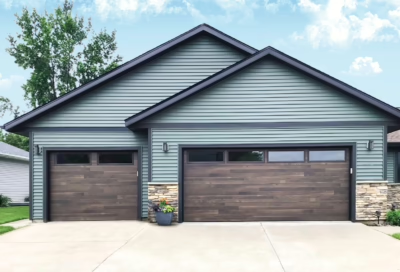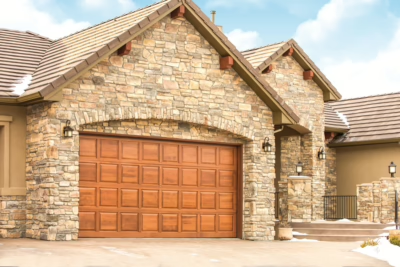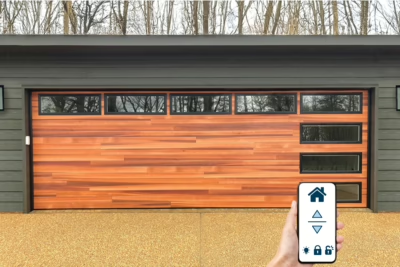A residential gate opener offers convenience, privacy, and an extra layer of security for your property – until it stops working the way it should. Whether it’s a sluggish motor, inconsistent remote response, or a gate that won’t open at all, malfunctions can be frustrating and even leave your home vulnerable.
Understanding the most common issues with residential gate openers can help you troubleshoot problems quickly and decide when it’s time to call in the pros. In this post, we’ll explore the top culprits behind opener failures, what they mean, and how to address them to keep your system running smoothly.
1. The Gate Doesn’t Open or Close at All
One of the most obvious – and aggravating – problems is when the gate doesn’t respond at all. This can be caused by a range of issues, from minor to more serious.
Common causes:
- Power interruption: Check for tripped breakers, disconnected wiring, or dead backup batteries.
- Remote malfunction: If the remote’s battery is dead or the transmitter is damaged, the gate won’t receive the signal.
- Control board failure: A blown fuse or faulty circuit board could prevent the gate from receiving commands.
Quick fixes:
- Confirm the gate has power by testing the outlet and checking breaker boxes.
- Replace the remote battery or try the manual override function to see if the gate can move.
- If the issue persists, the opener’s internal electronics may require professional service.
2. The Gate Opens or Closes Partially
If your gate stops midway, reverses unexpectedly, or struggles to reach its full range of motion, the cause is often mechanical or related to sensor calibration.
Possible reasons:
- Obstructions on the track or hinges
- Limit switch misalignment
- Damaged or worn drive gear
- Improper settings on swing or slide gate operators
This problem can lead to security concerns if the gate doesn’t fully close or leaves part of your entryway exposed.
What to do:
- Check for debris, rust, or misalignment along the path of the gate.
- Examine the chain (slide gate) or arm (swing gate) for signs of wear or disconnection.
- Review the control settings – some openers have adjustable travel or sensitivity limits that can be recalibrated.
3. Remote or Keypad Isn’t Responding
Remote transmitters and wireless keypads are convenient – until they stop working. This issue can stem from environmental interference, low battery power, or connectivity problems.
Contributing factors:
- Dead batteries
- Too much distance between the remote and receiver
- Radio frequency interference from nearby devices
- Faulty or outdated receiver module
Troubleshooting steps:
- Start by replacing the batteries.
- Test the remote or keypad from different distances and angles.
- If range is the issue, consider upgrading to a newer receiver with better signal strength or encryption.
4. Noisy Operation or Jerky Movement
While some gate opener noise is normal, loud grinding, squealing, or vibrating sounds are usually signs of wear or lack of lubrication. Jerky movement could indicate more serious mechanical issues.
Typical causes:
- Dry or corroded hinges
- Loose chain (for slide gates) or mounting hardware
- Motor gearing issues
- Unbalanced gate weight distribution
How to fix:
- Lubricate hinges, rollers, and moving parts with a silicone-based lubricant.
- Tighten any loose mounting brackets or adjust chain tension.
- Have a technician check for gear or motor damage, especially if the problem has worsened over time.
5. Safety Sensors Are Blocking Gate Movement
Gate openers include built-in safety mechanisms like photo-eye sensors that prevent the gate from closing on people, vehicles, or pets. If these sensors are misaligned or dirty, the system may think something is blocking the path – and refuse to operate.
Signs of sensor issues:
- Gate stops immediately after starting to close
- Blinking lights on the sensor units
- Error messages on your opener display (if applicable)
What to do:
- Gently clean the sensors with a soft cloth.
- Make sure both sensors are aligned and facing each other.
- Ensure no objects are blocking the path, even temporarily (like leaves or toys).
If the gate resumes operation after sensor adjustment, you’ve solved the problem. If not, a wiring issue or sensor replacement may be needed.
6. The Gate Operates Randomly
A gate that opens or closes on its own can be both confusing and dangerous. This issue is often linked to interference, faulty remotes, or programming errors.
Possible causes:
- Crossed radio frequencies with nearby gates
- Stuck buttons on a remote
- Damage control board or short circuit
Recommended actions:
- Reprogram your opener to a different frequency or rolling code setting.
- Test other remotes to rule out a stuck button.
- If the gate is operating at strange times, consider changing the access code and inspecting the receiver for tampering or moisture damage.
7. Motor Keeps Running After the Gate Stops
In some cases, the opener motor doesn’t shut off even after the gate reaches its fully open or closed position. This can lead to overheating and long-term damage to the system.
Likely causes:
- Limit switches are broken or out of calibration
- Control board relay is stuck in the “on” position
- Motor is failing to detect resistance properly
Why this matters:
Aside from wasted energy, this issue can cause early motor burnout or safety hazards if the gate continues to try to move under stress.
A technician should inspect the system immediately if this happens – continued use may result in a full system failure.
Real-World Example: Diagnosing a Failing Swing Gate
A homeowner in Austin noticed that their swing gate would stop halfway during opening and occasionally reverse direction. The problem began intermittently but became more frequent over several weeks.
After a site inspection, it was discovered that the arm’s pivot point had worn down, causing mechanical resistance. Combined with outdated sensor calibration, the system interpreted the extra resistance as an obstruction and reversed the gate.
The solution involved:
- Replacing the swing arm hardware
- Realigning the sensors
- Updating the travel limits on the control panel
After service, the gate operated smoothly – and the owner signed up for a quarterly maintenance plan to prevent future issues.
Final Thoughts
Your residential gate opener is a hardworking system that combines mechanical precision with smart technology – and like any machine, it needs proper care to keep performing at its best. Understanding common issues can help you spot small problems before they become major inconveniences.
Whether you’re dealing with a stuck gate, unresponsive remote, or safety sensor error, DuraServ offers reliable repair, maintenance, and upgrade services to keep your property secure and accessible.



